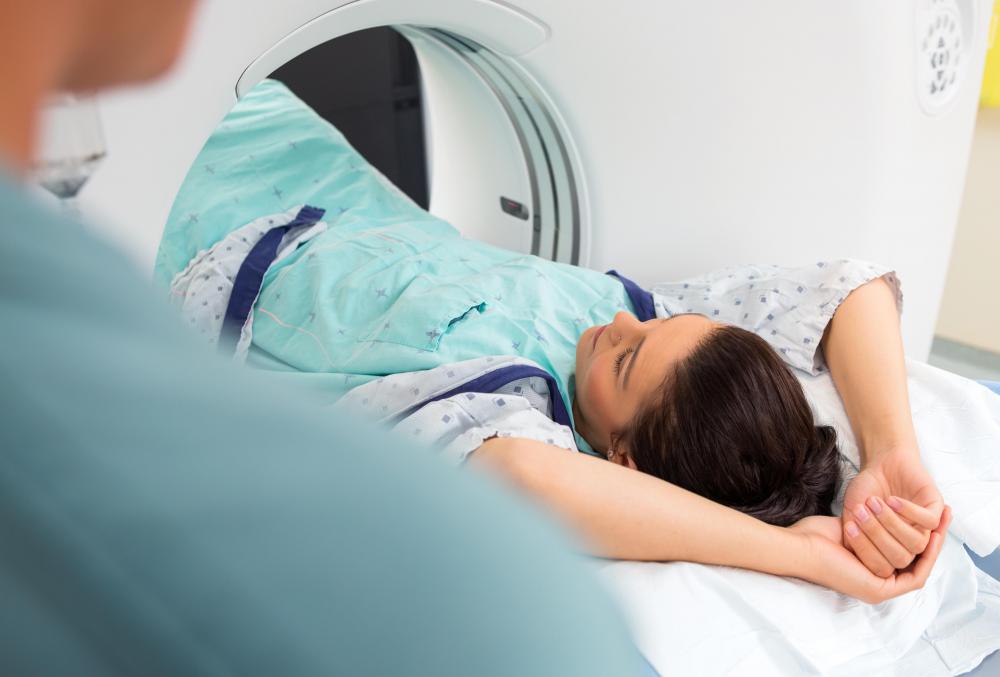At TheHealthBoard, we're committed to delivering accurate, trustworthy information. Our expert-authored content is rigorously fact-checked and sourced from credible authorities. Discover how we uphold the highest standards in providing you with reliable knowledge.
What Are the Signs of Appendicitis in Adults?
In the human body, the appendix — or vermiform appendix — is a mucus-producing tube that is connected to the cecum, located at the bottom of the ascending colon. In previous times, scientists believed that the appendix was a vestigial organ that aided in the digestion of plant matter, but the organ is now believed to play a large role in maintaining a healthy immune system. Sometimes, the appendix becomes inflamed and results in appendicitis, which generally requires antibiotic treatment and surgery. The signs of appendicitis in adults can vary by person, but the most common symptoms include nausea, vomiting, abdominal tenderness, and fever.
Appendicitis means inflammation of the appendix. Scientists believe that the initial stage of appendicitis occurs when the connection between the appendix and the cecum become blocked. Generally, the blockage is due to excess build-up of thick mucus, swelling of lymphatic tissue, or fecal matter leaking from the cecum into the appendix. After such a blockage occurs, bacteria attack the appendix wall, causing inflammation. When an adult body attacks the bad bacteria, the signs of appendicitis appear, causing the person to feel nauseated, have pain in the abdomen, and develop a high fever.

The signs of appendicitis in adults are similar to those in children. Although not all typical symptoms will appear, the most common signs are usually abdominal pain or tenderness and vomiting. Once the pain becomes unbearable, a visit to a doctor or hospital is necessary. To diagnose appendicitis, a doctor might perform a wide variety of tests, including a urinalysis, barium enema, abdominal X-ray, CT scan, or a laparoscopy. Once the condition is discovered, the physician might schedule surgery or simply treat the infection with antibiotics.

In extreme cases of infection, the appendix can rupture. Although the abdominal pain may initially subside, an intense infection can occur and spread throughout the abdomen, causing more severe signs of appendicitis in adults. The patient will generally vomit excessively and have a life-threateningly high fever. In this case, it is essential that the patient receive immediate medical treatment and surgery, which will typically require the doctor to remove the infection and any remaining part of the appendix. Initially, the patient will receive intense antibiotic treatment to isolate the infection, then the doctor will remove the appendix, either by general or laparoscopic surgery.

Sometimes, the body will contain the infection and heal the appendicitis without surgical treatment. In cases where the disease is caught early, doctors may administer antibiotics, which can contain and eliminate infection. After the infection is cleared, the symptoms will usually disappear. In many cases, however, the infection and symptoms reappear, although diagnosis and treatment is then generally less complicated.
AS FEATURED ON:
AS FEATURED ON:















Discussion Comments
@Pippinwhite -- When I had appendicitis, I had a raging fever and no pain or nausea, except for a little tenderness in my abdomen. It was weird. My doc said it was weird. He managed to get the appendix removed before it ruptured, but the fever was just awful.
You're right about peritonitis, though. I'm so glad I didn't have that!
Every adult I've ever known who had a hot appendix had extreme abdominal pain, nausea and vomiting. I'd say those are the most common signs. I've heard of people running a fever, but mostly they have pain and nausea. I've seen grown people rolling around on the floor because of the pain. It can be very, very bad.
Peritonitis is worse though, so don't mess around with that kind of pain. Anything is better than peritonitis.
Post your comments